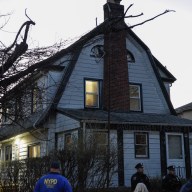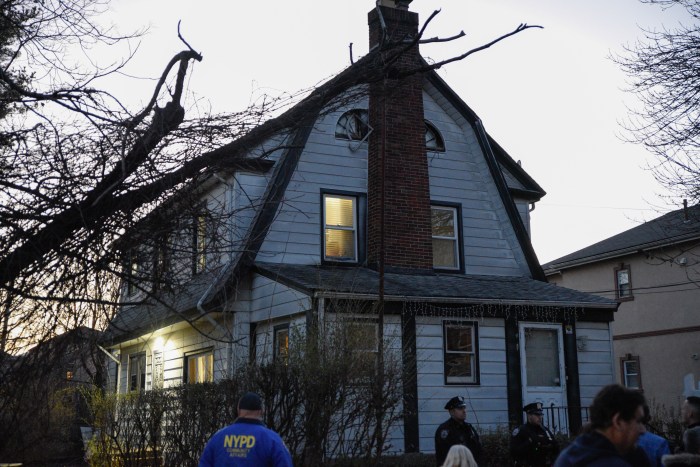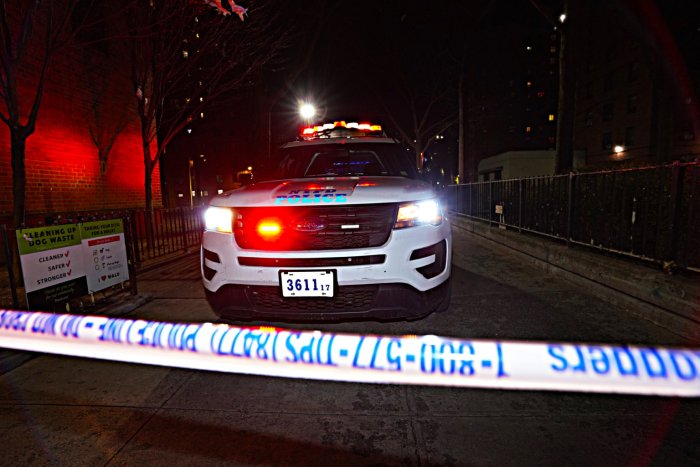By Alexander Dworkowitz
New York City immigrants have faced aggressive questioning from authorities, a tougher economy and more legal restrictions in the aftermath of Sept. 11, a panel of civic leaders at the Flushing Library said last week.
“There is a lot of fear and nervousness in immigrant communities,” said Bryan Pu-Folkes, the president of New Immigrant Community Empowerment. “People are afraid to leave the country to see their family for fear of not being able to come back.”
Sponsored by Asian Americans for Equality and Newsday, the Nov. 14 panel was called “Changing Face of Immigration: Community Forum on the Impact of September 11 on Immigration Laws.” The panelists addressed an audience of hundreds, including local politicians, representatives from dozens of civic organizations and immigrants. The forum offered translations in Chinese and Urdu.
Since terrorists flew two hijacked airplanes into the Twin Towers and Pentagon on Sept. 11, the federal government has turned to legislation to combat terrorism. On Oct. 26, President Bush signed the USA Patriot Act into law after it was passed overwhelmingly by both the House and the Senate.
Pushed for by Attorney General John Ashcroft, the act expands the government’s right to conduct wiretapping and strengthens penalties for those who help terrorists. The law also allows for longer detentions of non-citizens suspected of being terrorists.
It is the detention provision that has concerned many immigrants rights advocates.
“A non-citizen can be charged with spitting on the sidewalk or something and can be held indefinitely,” said Cyrus Mehta, chairman of the Committee, chairman of the Committee on Immigration & Naturalization of the city Bar Association.
He said a non-citizen suspected of being connected to terrorism can be detained for seven days without being charged with a crime. After the seven days, the suspect must be charged or else released, but the crime does not have to have anything to do with terrorism.
Most of the more than 1,000 non-citizens detained in the United States on suspicion of terrorism since Sept. 11 have simple paperwork problems and are not involved with the Islamic fundamentalist network that carried out the hijackings.
Arshad Majid, legal adviser to the Council of American/Islamic Relations who spoke from the audience, agreed with Mehta.
“A lot of people are getting themselves into a lot of trouble that could be avoided if they were properly educated,” he said. “My experience is that law enforcement is using opinion based questions to implicate people.”
Audience questions reflected the concerns of the panelists. One audience member asked what should be done if a family member was detained on suspicion of terrorism. The panelists responded that the family should seek strong legal counsel.
State Assemblyman Brian McLaughlin (D-Flushing) addressed some of the questions raised by the panelists.
“We have worked very, very hard on breaking down some of the barriers that confront immigrants,” he said. “In the wake of the attack, many of the barriers we had taken down are now in front of us again.”
Margie McHugh, executive director of the New York Immigration Coalition, said she believed laws like the Patriot Act were pushed by areas of the country which are not as familiar with immigrants as New York City.
“Those of us in New York know that immigrants were among the victims in the World Trade Center collapse and also among the heroes,” she said. “Unfortunately, this is not how immigrants are viewed outside of New York.”
McHugh added that economic downturns tend to hit immigrant communities harder than other communities.
“Recessions are very, very hard for immigrants. The country’s mood turns sour towards immigrants.”
McHugh noted that historically, immigration has been restricted in the United States during periods of economic decline.
But several panelists said there was some good news for immigrants. Mehta praised several provisions in the Patriot Act, which extended several filing deadlines for immigrants whose lives have been disrupted by Sept. 11.
“In the Patriotic Act itself, there are some wonderful provisions for immigrant benefits,” he said.
Although the Patriotic Act and possible similar laws in the future were a cause of concern for the panelists, they insisted that immigrants not live in fear of authorities.
“I think we all have to hold our heads high,” said Mehta. “We have to be less fearful and stand up for our rights.”
Ivan Larios, director of community services for U.S. Rep Joseph Crowley (D-Jackson Heights), was the fourth panelist at the meeting.
Reach Reporter Alexander Dworkowitz by e-mail at Timesledger@aol.com or call 229-0300, Ext. 141.
































